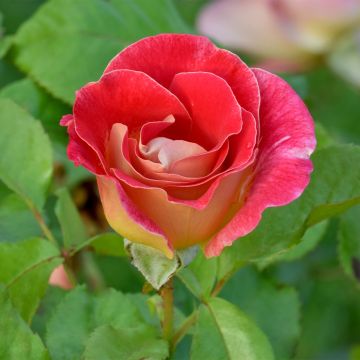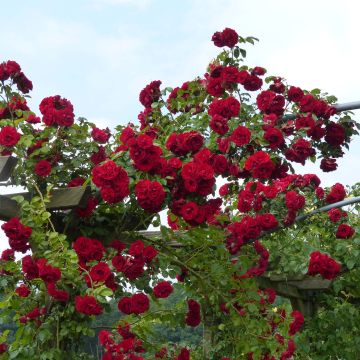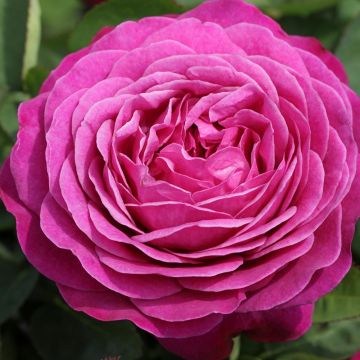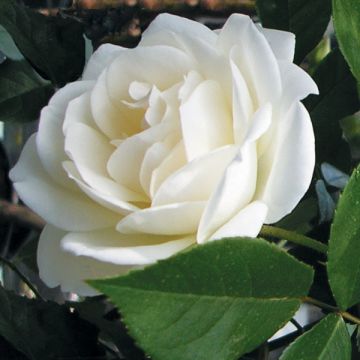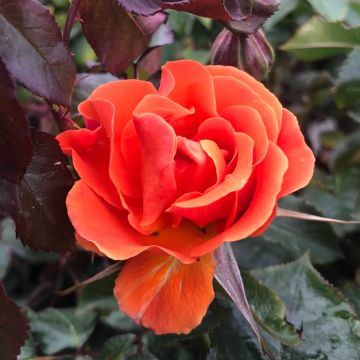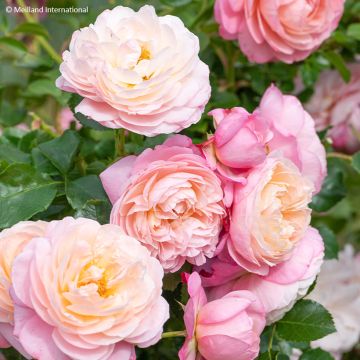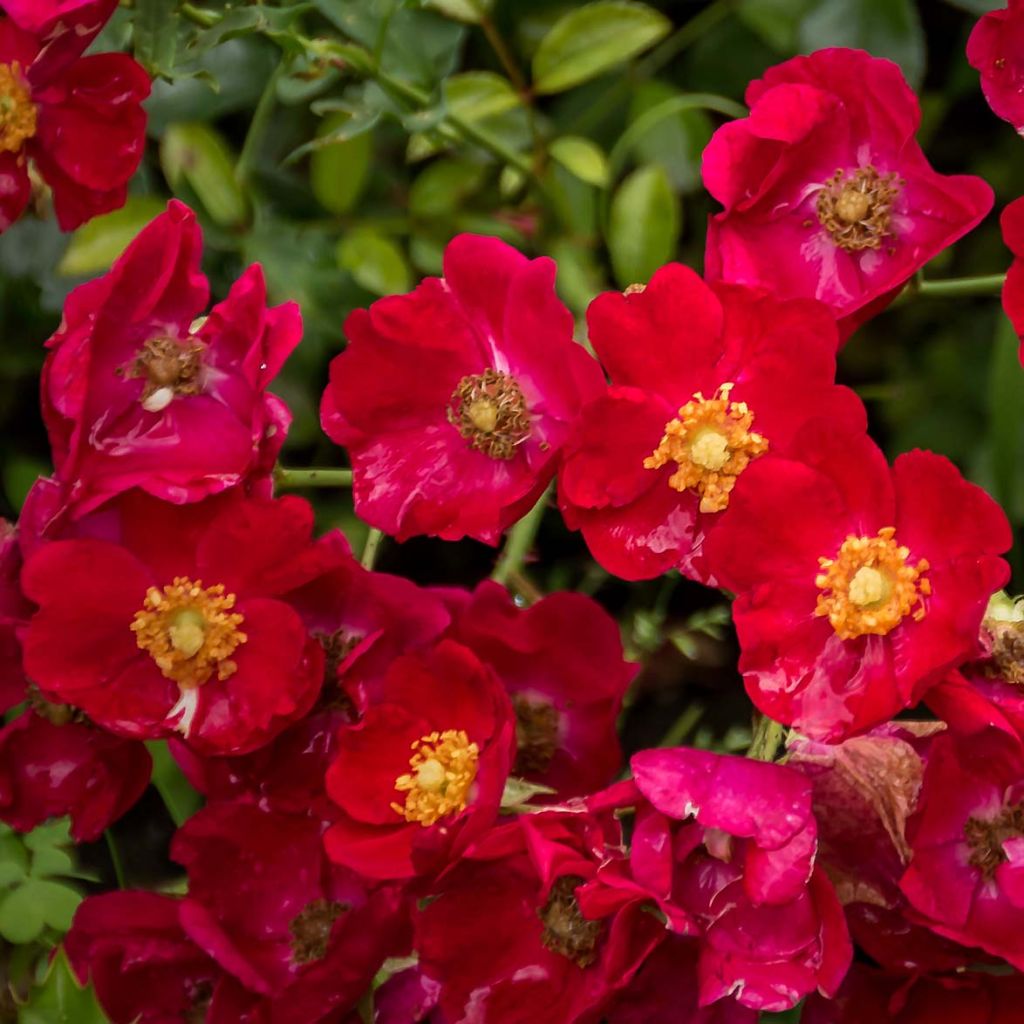

Rosa Vesuvia - groundcover shrub rose
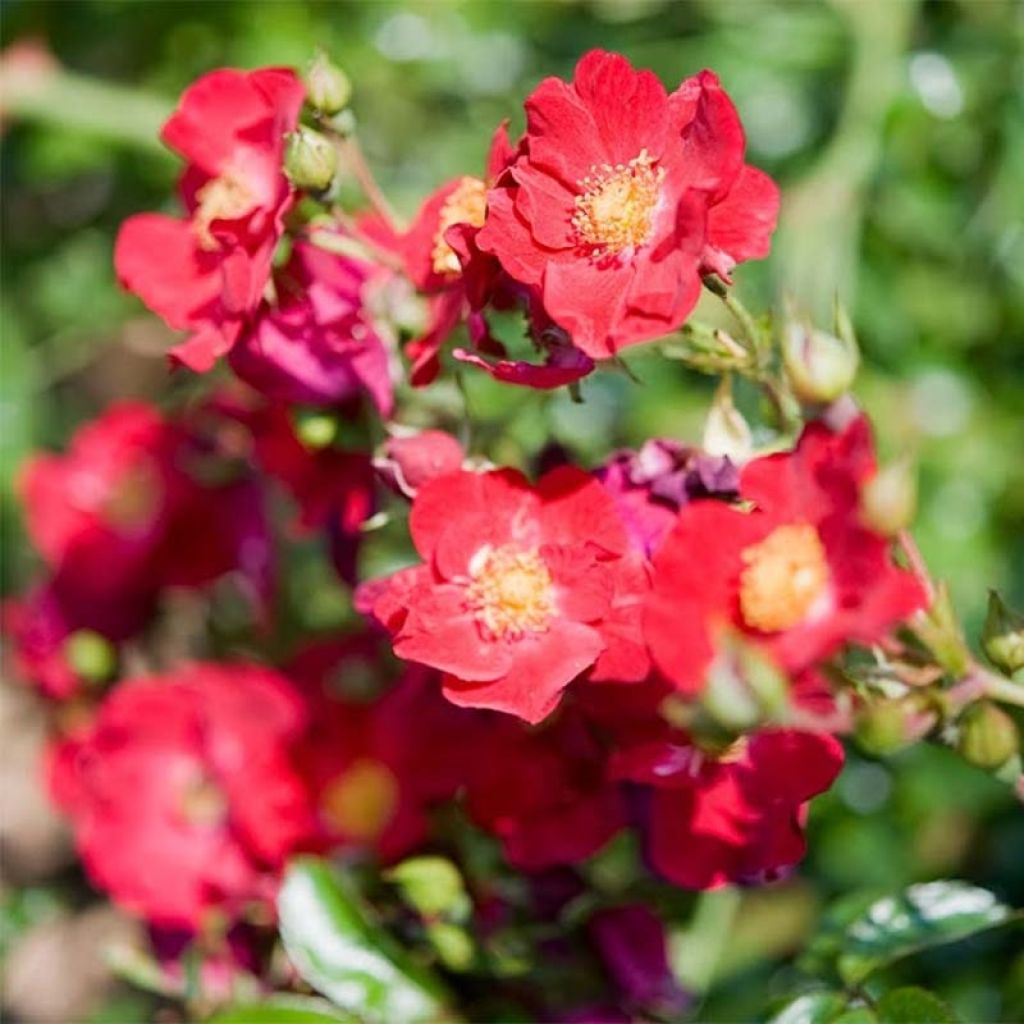

Rosa Vesuvia - groundcover shrub rose
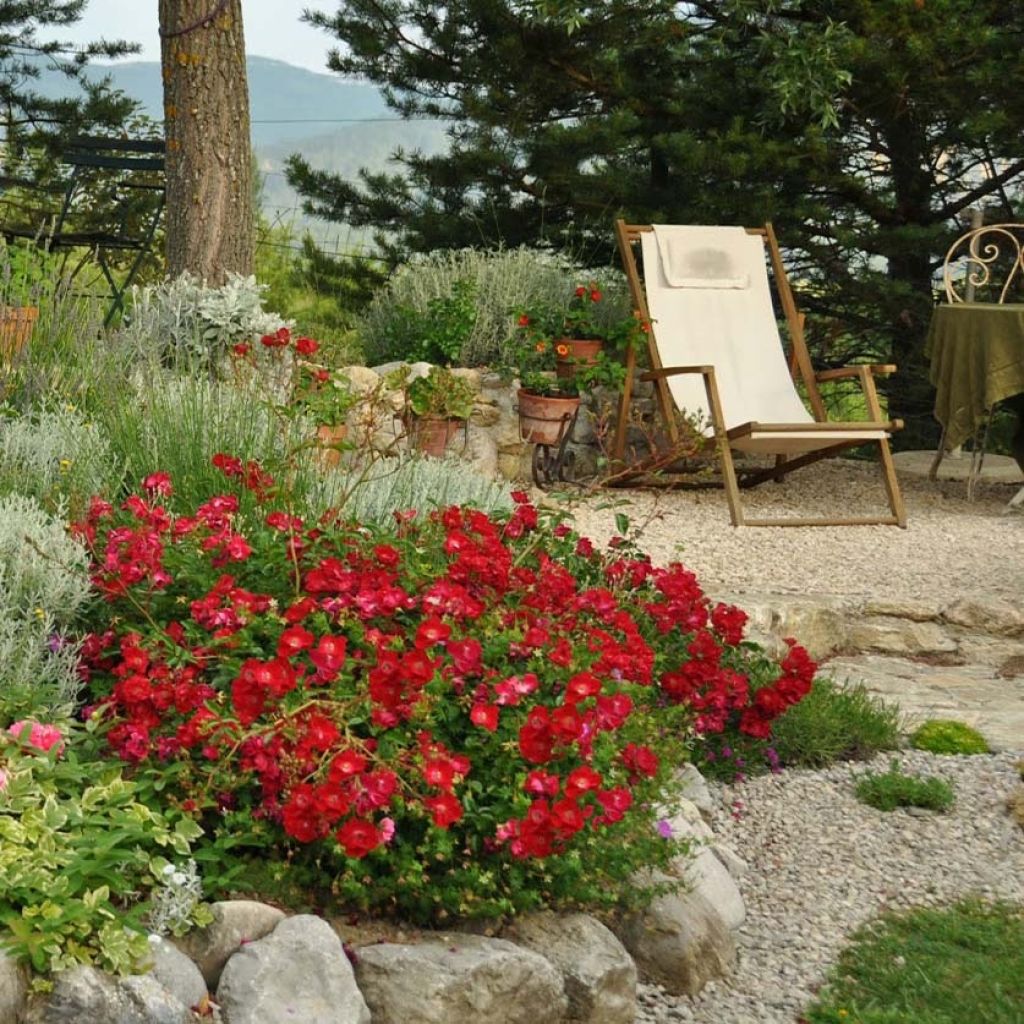

Rosa Vesuvia - groundcover shrub rose
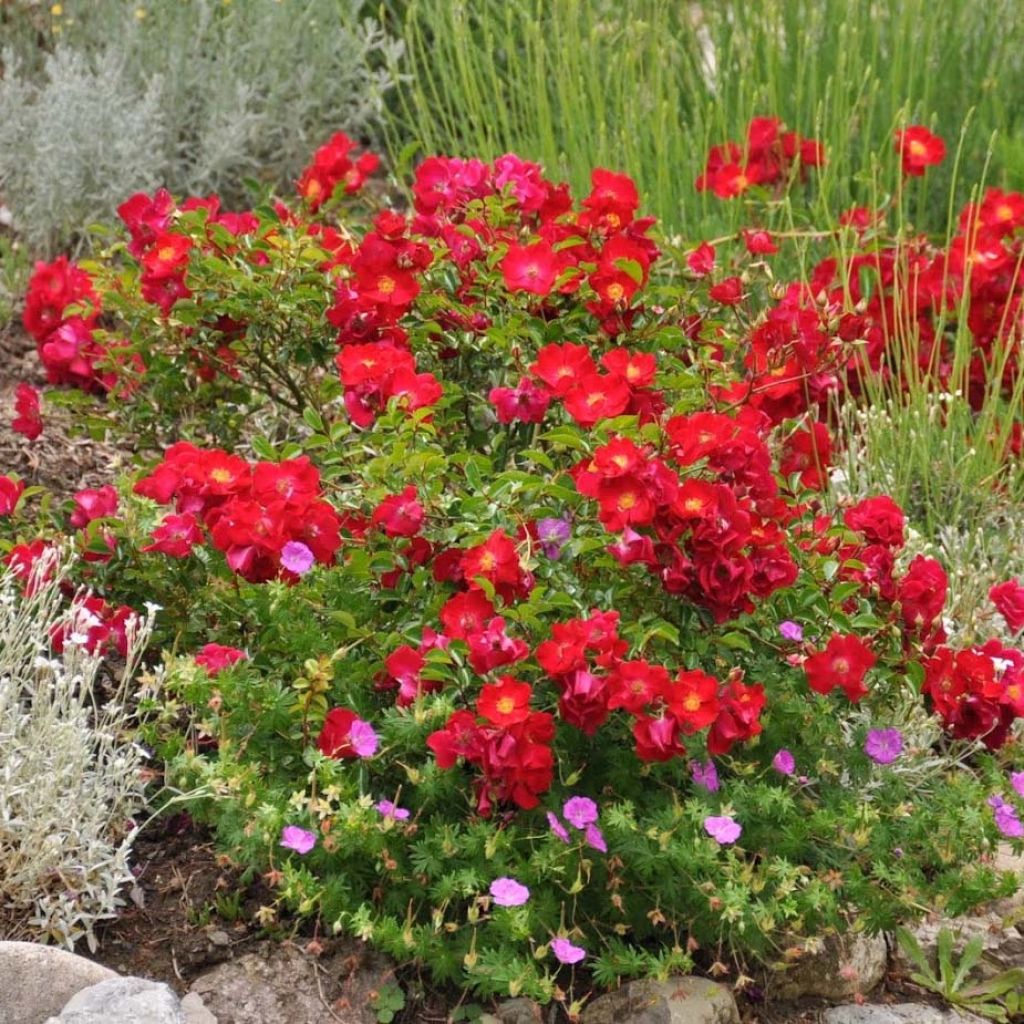

Rosa Vesuvia - groundcover shrub rose
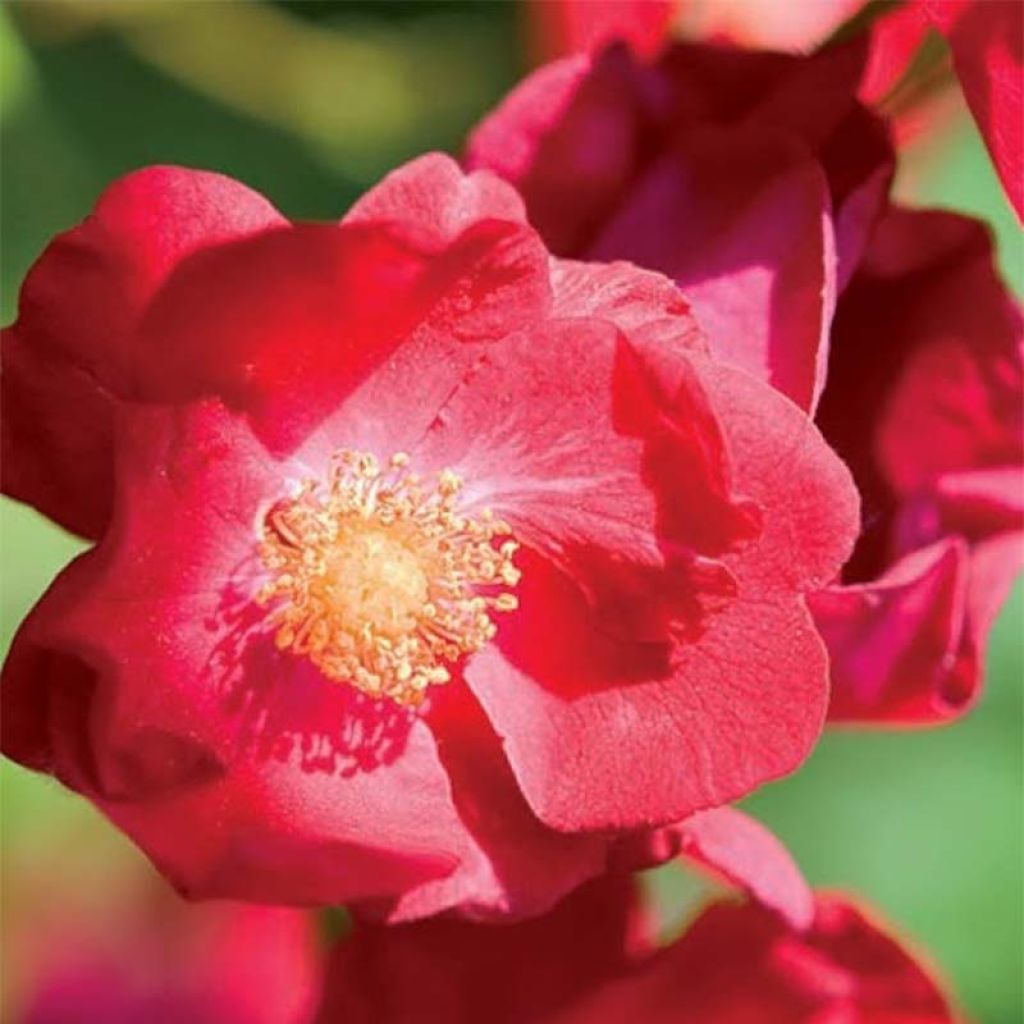

Rosa Vesuvia - groundcover shrub rose
View more pictures
Hide images
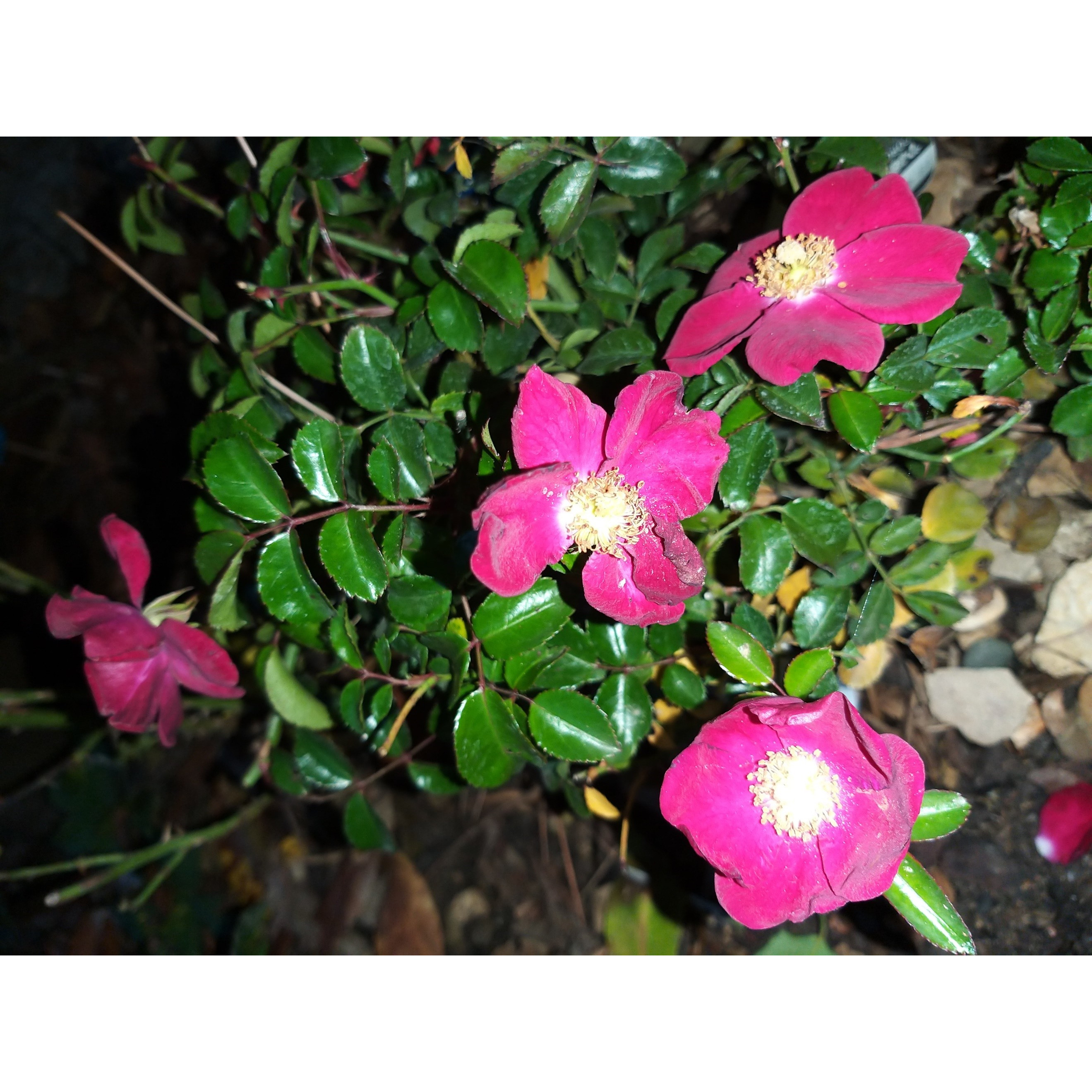
Thierry P.

October flowering - image 28
Thierry P. • 84 FR
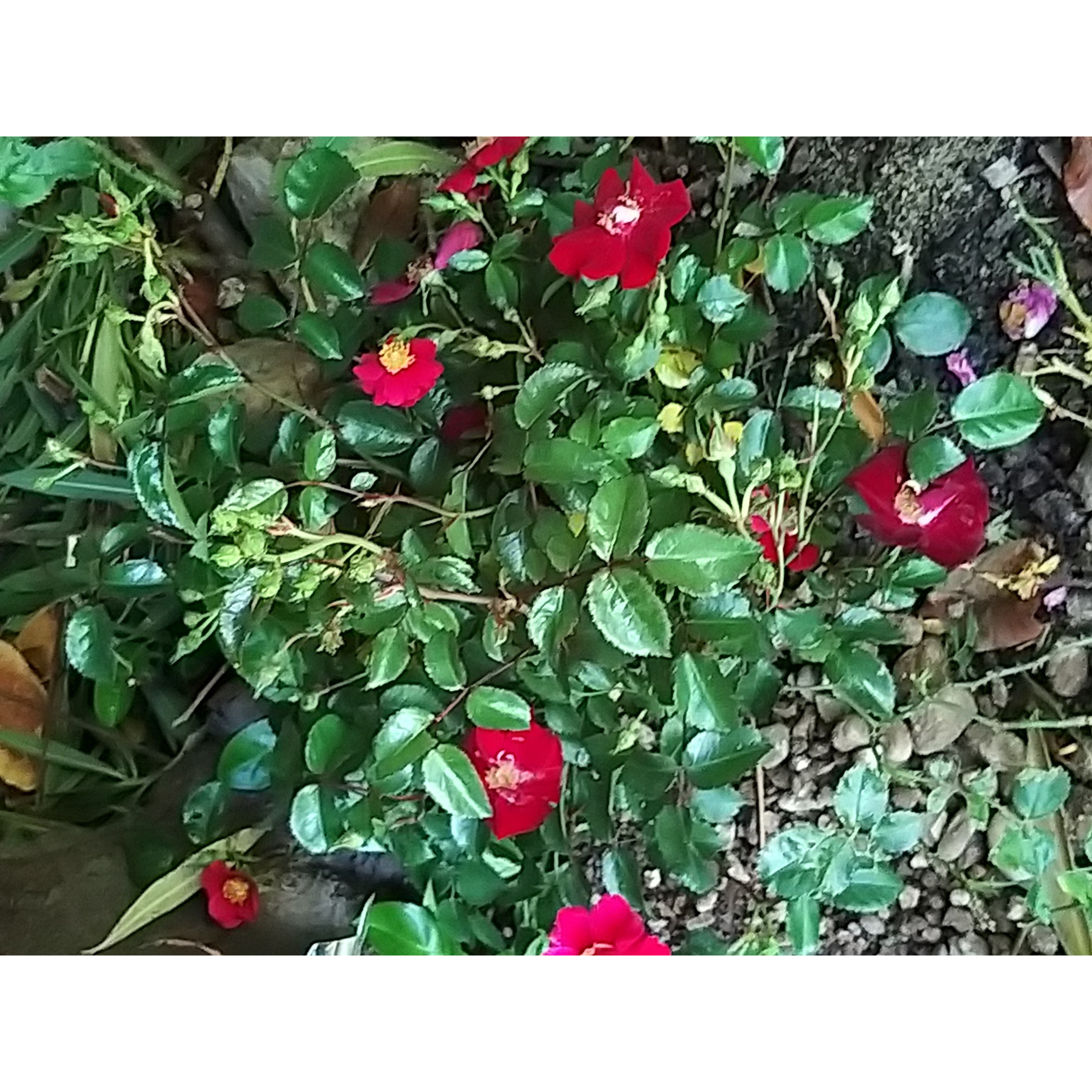
Thierry P.

May flowering - image 17
Thierry P. • 84 FR
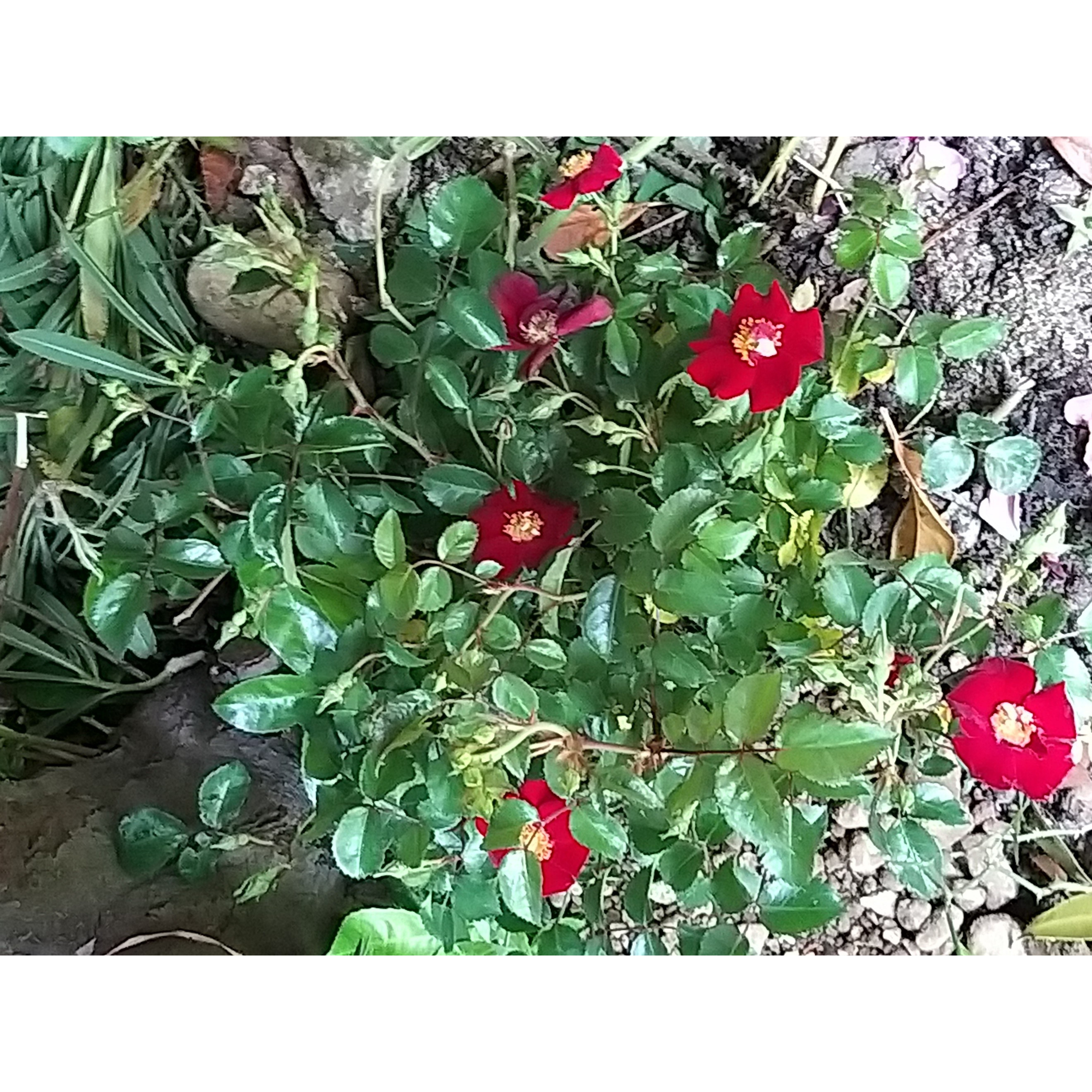
Thierry P.

May flowering - image 16
Thierry P. • 84 FR
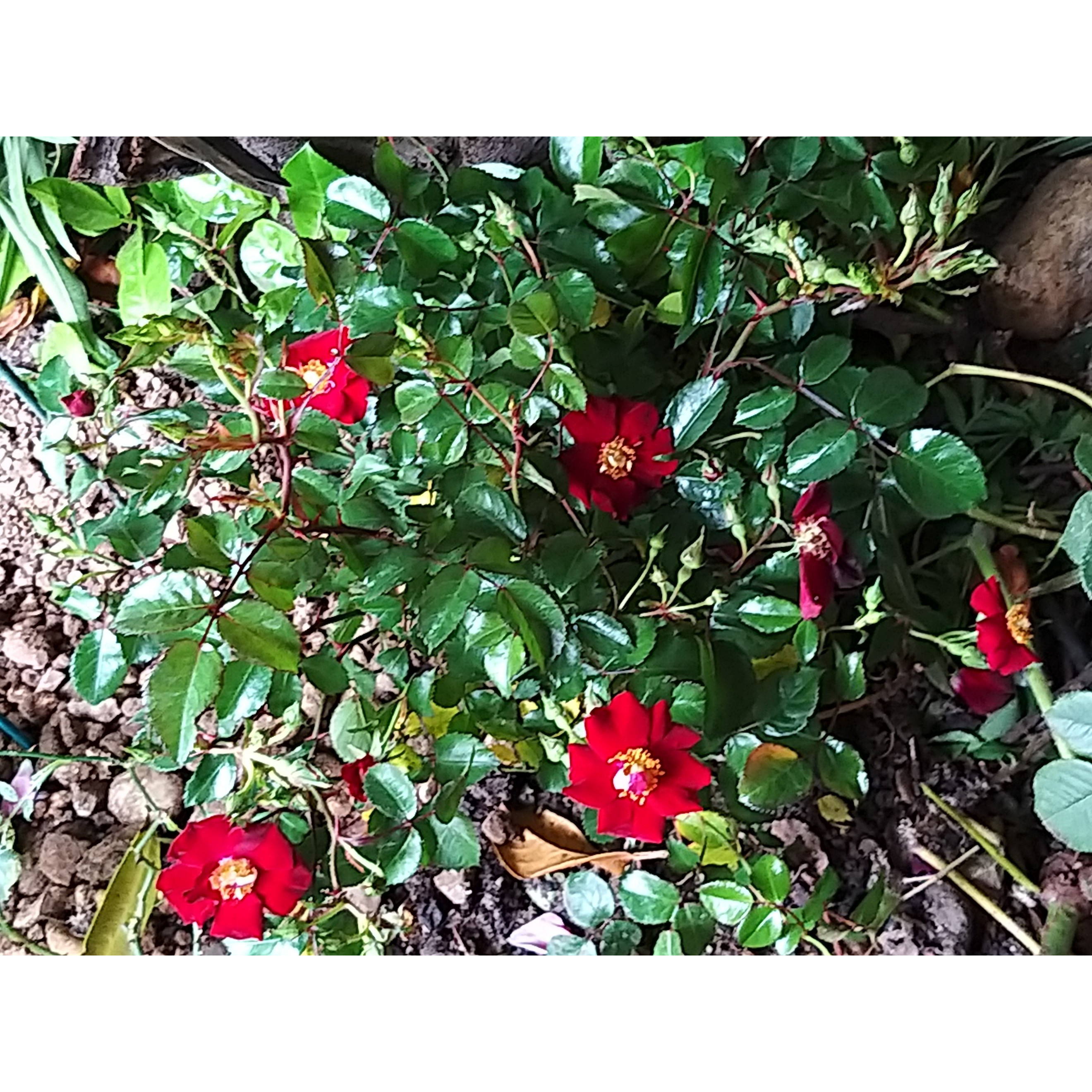
Thierry P.

May flowering - image 15
Thierry P. • 84 FR
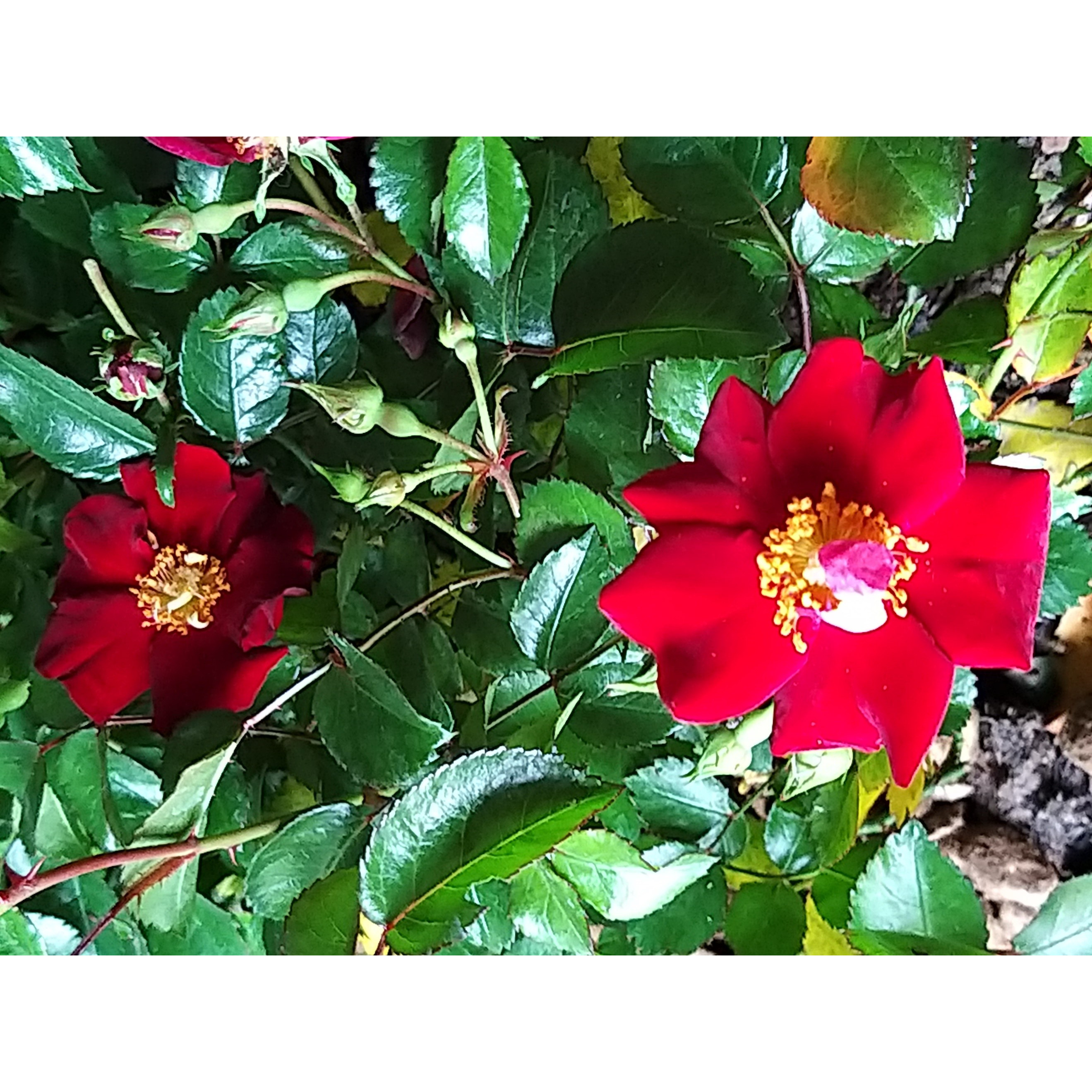
Thierry P.

May flowering - image 14
Thierry P. • 84 FR
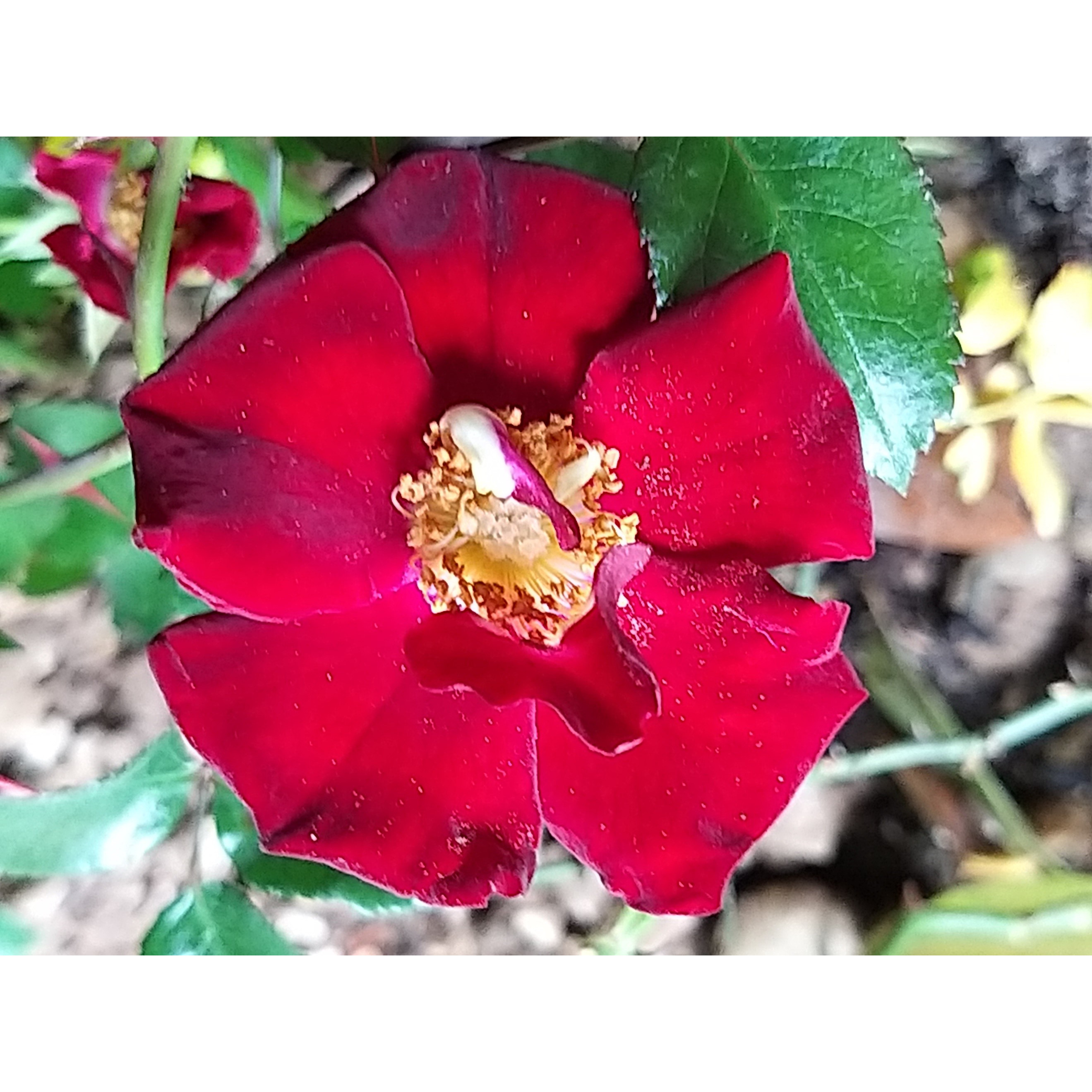
Thierry P.

May flowering - image 13
Thierry P. • 84 FR
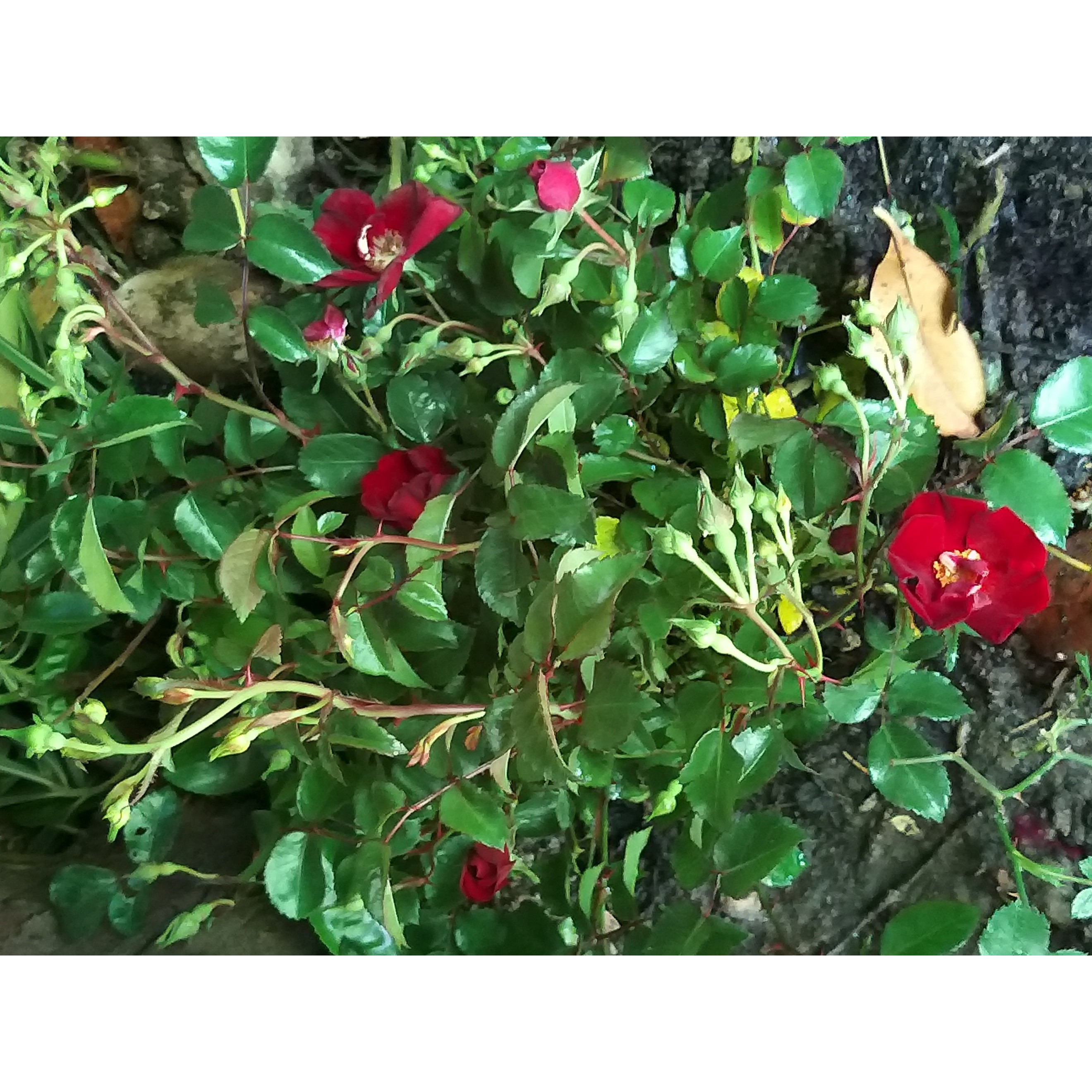
Thierry P.

May flowering - image 12
Thierry P. • 84 FR
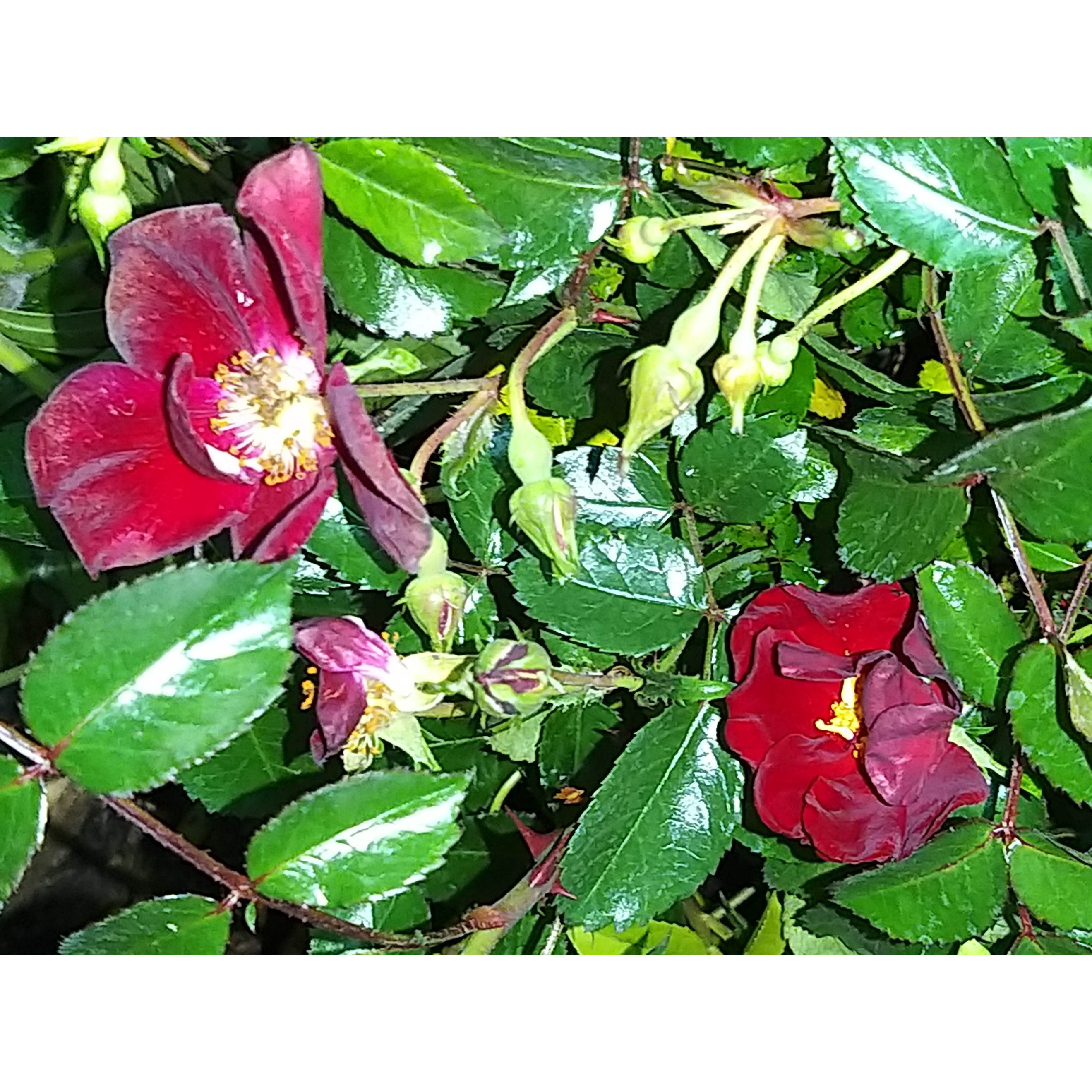
Thierry P.

May flowering - image 11
Thierry P. • 84 FR
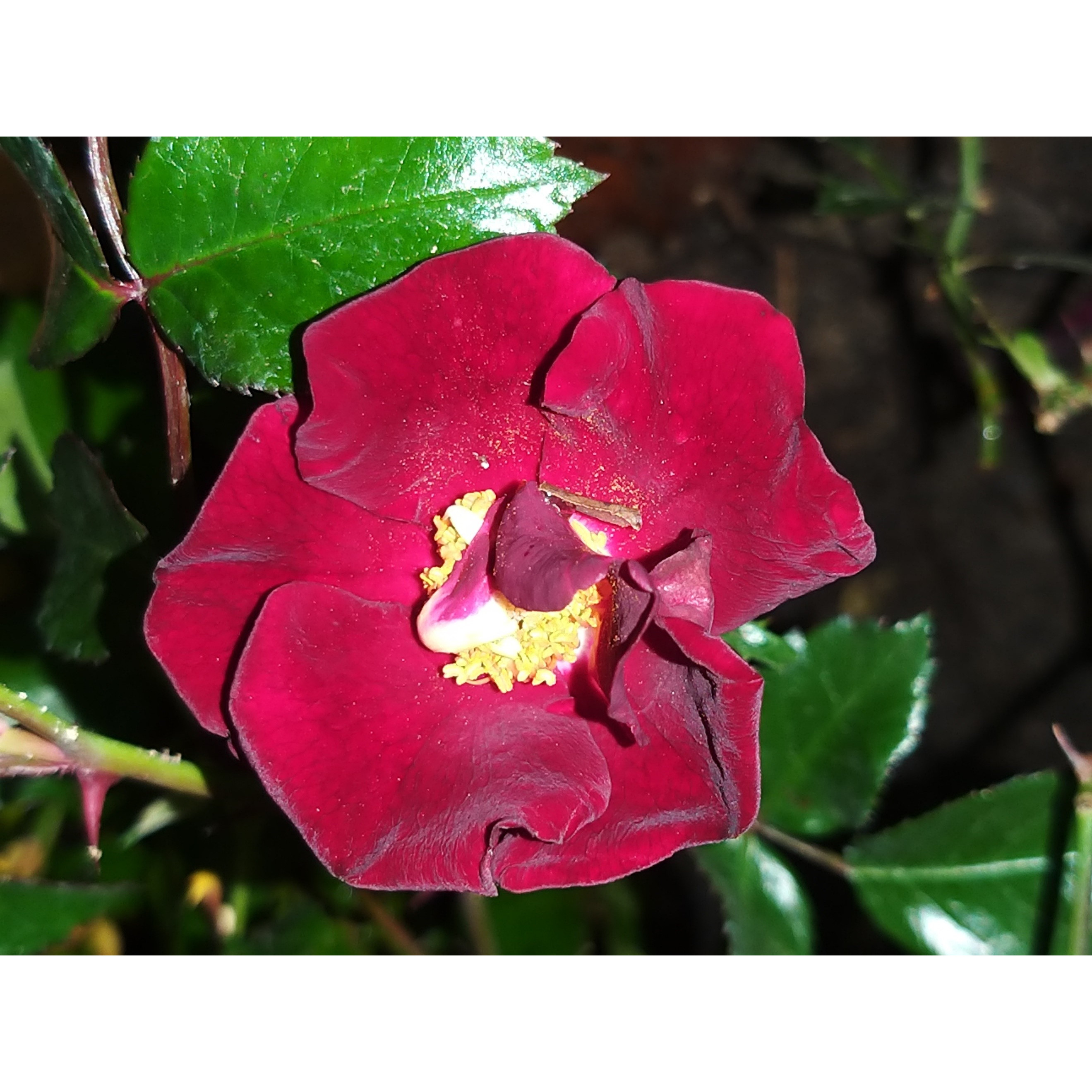
Thierry P.

N/A
Thierry P. • 84 FR
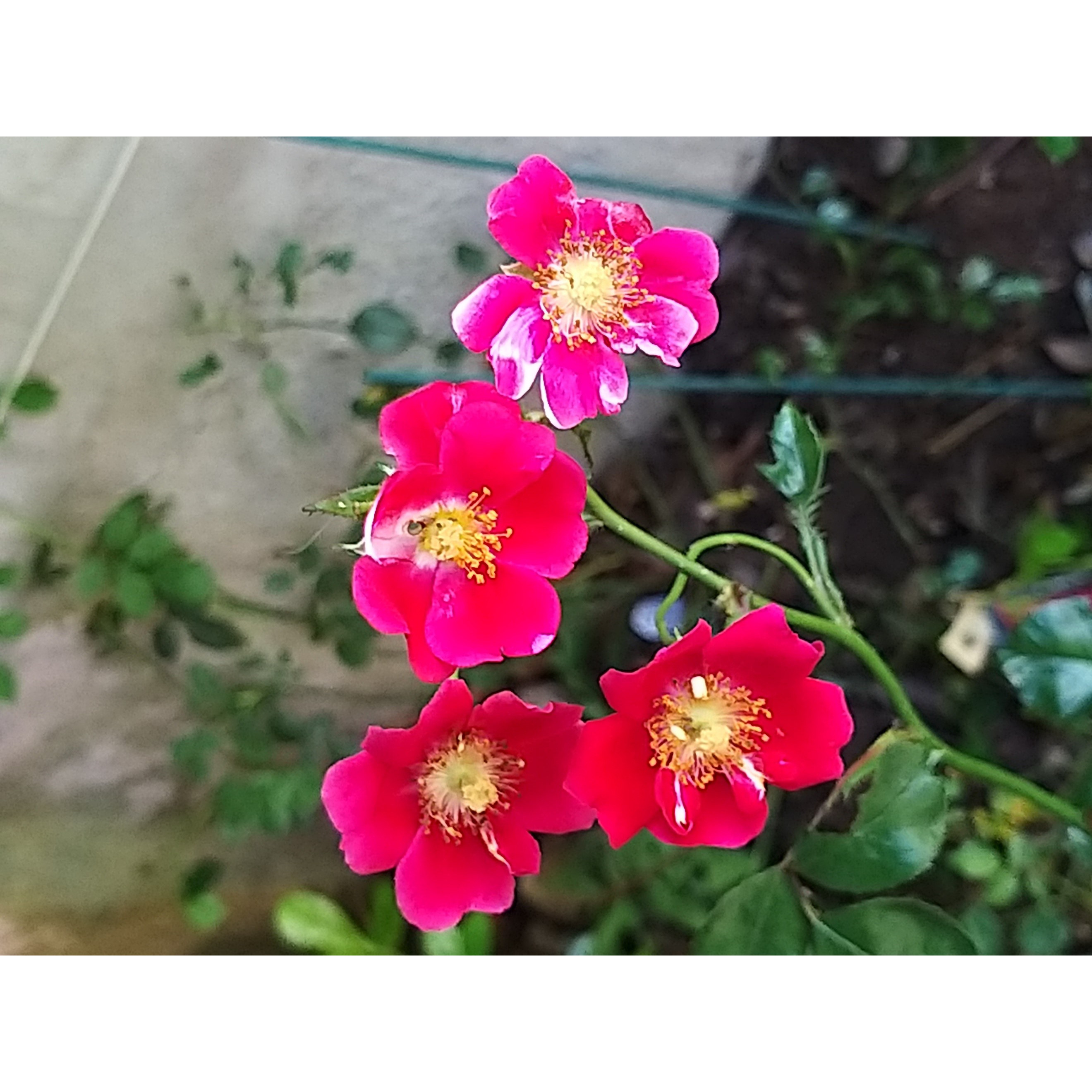
Thierry P.

May flowering - image 9
Thierry P. • 84 FR
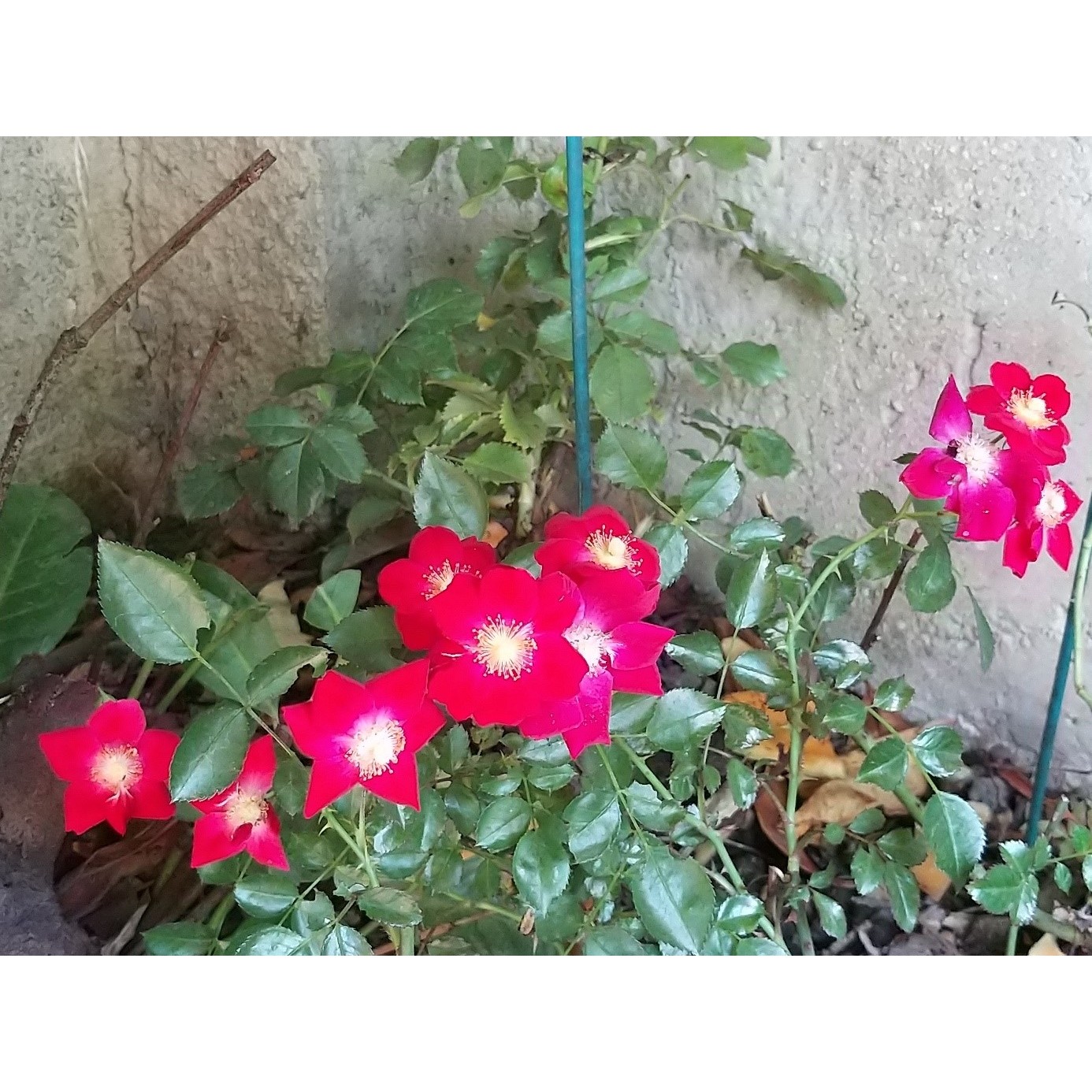
Thierry P.

No text to translate.
Thierry P. • 84 FR
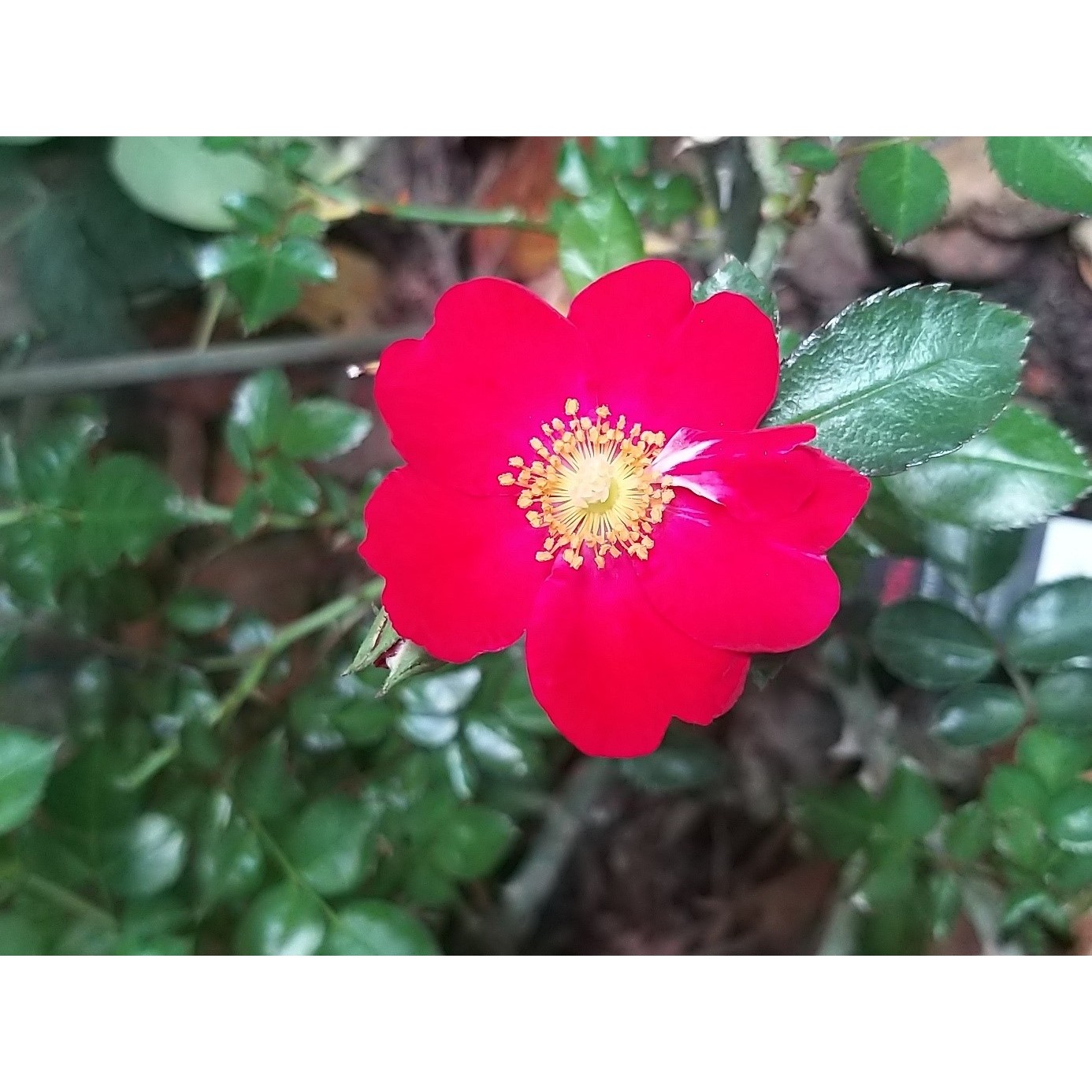
Thierry P.

No text to translate.
Thierry P. • 84 FR
Rosa Vesuvia - groundcover shrub rose
Rosa Décorosiers® Vesuvia ® NOAre
Rose
Plants well protected but package damaged, crushed at one end, taped up with adhesive tape by Chronopost. Rosebush, 3 branches broken, a stake was sticking through the box, the pot of lavender was split open..!
Laure OR, 15/04/2024
Special offer!
Receive a €20 voucher for any order over €90 (excluding delivery costs, credit notes, and plastic-free options)!
1- Add your favorite plants to your cart.
2- Once you have reached €90, confirm your order (you can even choose the delivery date!).
3- As soon as your order is shipped, you will receive an email containing your voucher code, valid for 3 months (90 days).
Your voucher is unique and can only be used once, for any order with a minimum value of €20, excluding delivery costs.
Can be combined with other current offers, non-divisible and non-refundable.
Home or relay delivery (depending on size and destination)
Schedule delivery date,
and select date in basket
This plant carries a 6 months recovery warranty
More information
We guarantee the quality of our plants for a full growing cycle, and will replace at our expense any plant that fails to recover under normal climatic and planting conditions.
Description
The Decorosier Vesuvia Rose Bush, classified in the category of shrub roses, is an excellent rose bush capable of creating a magnificent ground cover due to its low, very dense, and well-covering habit. Strong and floriferous, it ensures an exceptional, almost permanent, decoration, requires very little maintenance, and offers a long uninterrupted flowering from May until the frost, in the form of single flowers of a deep red, enhanced with a small yellow centre. It is highly appreciated by urban landscapers and never sick, it is also well suited for informal flower beds in our gardens with simple perennials or bushes with colourful foliage.
The 'Vesuvia' rose (noare), also known as 'Velvet Flower Carpet', 'Alcantara', 'Red Velvet', was obtained in 1998 by the German rose breeder Reinhard Noack and is classified as a modern, shrub and landscape rose. Its clustered flowers come from the polyantha rose, an old hybrid derived from Rosa multiflora and Rosa chinensis. The plant forms a very dense bush 70 to 80 cm (28 to 32in) high, forming a slightly spreading dome about 90 cm (35in) to 1 m (3ft) wide, depending on the growing conditions. It is very floriferous with an abundance of single flowers with a diameter of 5 cm (2in) from May to October, a fairly deep velvety red with a golden yellow stamen centre. They have no fragrance. They are gathered in small clusters. Its healthy semi-evergreen foliage is composed of small, shiny dark green leaves that cover thorny stems. This variety tolerates heat well.
The Vesuvia rose can be used in flower beds, borders, large spaces and slopes, or as low hedges. It adapts to all soils that are not too wet and all climates, allowing it to be grown from the north to the south. It has a dense growth habit that works well on a slope, where it will cover the ground. When planted en masse, it will also border pathways and edge flower beds. It can be grown with perennial geraniums (Geranium Blue Cloud, Anne Folkard, Nimbus, Orion), bellflowers (lactiflora, rapunculoides), catmints, lavenders, snapdragons, foxgloves, or Stachys. Left to grow freely, it will form a bush with a light, flowery, and cloudy shape, with a very natural appearance in front of a flower bed composed of flowering bushes such as abelias, Kolwitzia, mock oranges, elderberries, or shrubby wormwoods.
Report an error about the product description
Rosa Vesuvia - groundcover shrub rose in pictures
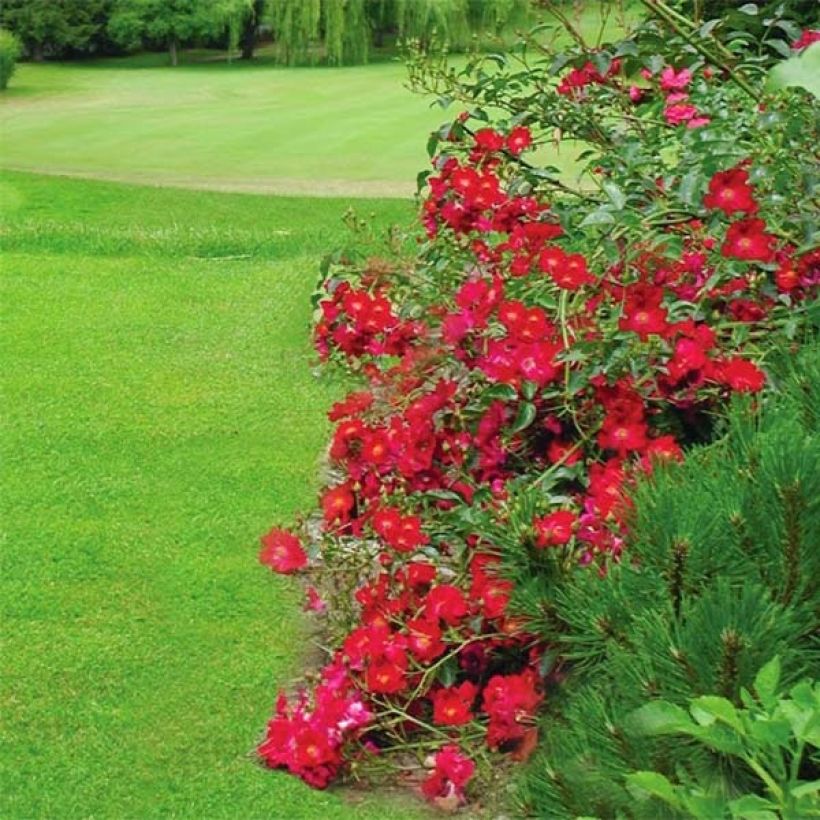

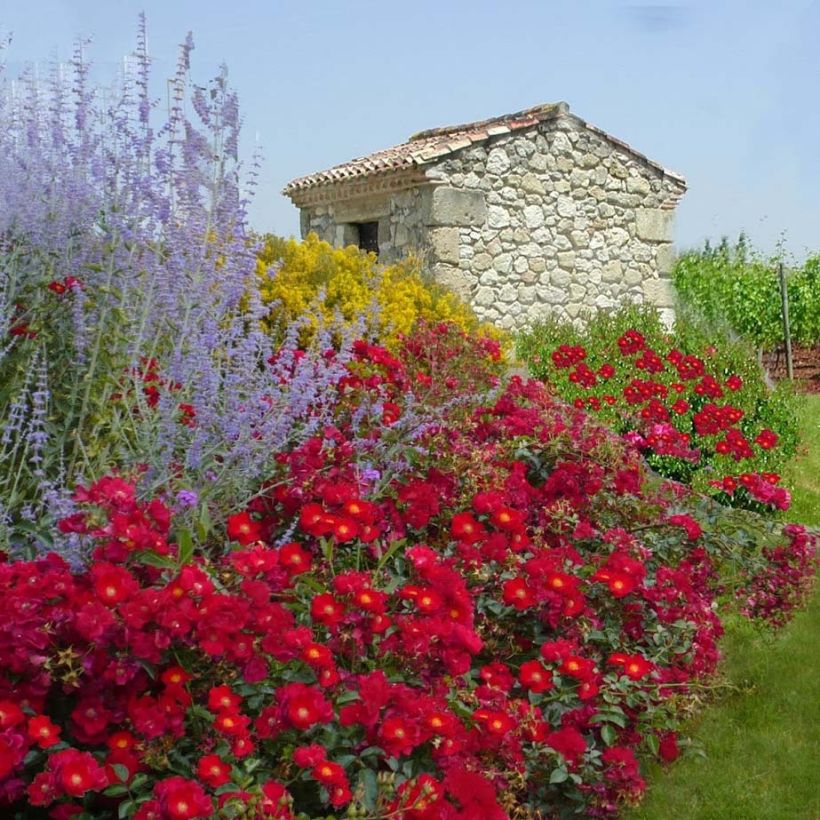

Plant habit
Flowering
Foliage
Botanical data
Rosa
Décorosiers® Vesuvia ® NOAre
Rosaceae
Rose
Cultivar or hybrid
Rosa multiflora (Wrapped bare root)
Planting and care
The Decorosier roses prefer a sunny location (at least 4 to 5 hours of sun per day) but sheltered from strong winds. Vesuvia, however, tolerates heat very well and adapts to most soils. All roses like loose, permeable soils rich in humus. They prefer slightly acidic soil but will adapt to any garden as long as the ground is well-worked and sufficiently rich. To plant your rose, work the soil to a depth of 25 cm (10in), break it up well and place a base fertiliser in the planting hole, such as bonemeal, position your plant after removing it from its pot, covering the top of the root ball with 3 cm (1in) of soil, fill in and water generously to eliminate air pockets. In dry weather, water regularly for a few weeks to aid root establishment. Provide your rose with special rose fertiliser that stimulates flowering.
Pruning: it is not essential, but you can clean up old wood and shorten some branches to 2/3 of their growth at the end of winter.
Roses are often stained or unsightly at the end of summer, but this is not a problem for their development. These stains are not harmful to the rose, it is a natural phenomenon.
Planting period
Intended location
Care
-
, onOrder confirmed
Reply from on Promesse de fleurs
Similar products
Haven't found what you were looking for?
Hardiness is the lowest winter temperature a plant can endure without suffering serious damage or even dying. However, hardiness is affected by location (a sheltered area, such as a patio), protection (winter cover) and soil type (hardiness is improved by well-drained soil).

Photo Sharing Terms & Conditions
In order to encourage gardeners to interact and share their experiences, Promesse de fleurs offers various media enabling content to be uploaded onto its Site - in particular via the ‘Photo sharing’ module.
The User agrees to refrain from:
- Posting any content that is illegal, prejudicial, insulting, racist, inciteful to hatred, revisionist, contrary to public decency, that infringes on privacy or on the privacy rights of third parties, in particular the publicity rights of persons and goods, intellectual property rights, or the right to privacy.
- Submitting content on behalf of a third party;
- Impersonate the identity of a third party and/or publish any personal information about a third party;
In general, the User undertakes to refrain from any unethical behaviour.
All Content (in particular text, comments, files, images, photos, videos, creative works, etc.), which may be subject to property or intellectual property rights, image or other private rights, shall remain the property of the User, subject to the limited rights granted by the terms of the licence granted by Promesse de fleurs as stated below. Users are at liberty to publish or not to publish such Content on the Site, notably via the ‘Photo Sharing’ facility, and accept that this Content shall be made public and freely accessible, notably on the Internet.
Users further acknowledge, undertake to have ,and guarantee that they hold all necessary rights and permissions to publish such material on the Site, in particular with regard to the legislation in force pertaining to any privacy, property, intellectual property, image, or contractual rights, or rights of any other nature. By publishing such Content on the Site, Users acknowledge accepting full liability as publishers of the Content within the meaning of the law, and grant Promesse de fleurs, free of charge, an inclusive, worldwide licence for the said Content for the entire duration of its publication, including all reproduction, representation, up/downloading, displaying, performing, transmission, and storage rights.
Users also grant permission for their name to be linked to the Content and accept that this link may not always be made available.
By engaging in posting material, Users consent to their Content becoming automatically accessible on the Internet, in particular on other sites and/or blogs and/or web pages of the Promesse de fleurs site, including in particular social pages and the Promesse de fleurs catalogue.
Users may secure the removal of entrusted content free of charge by issuing a simple request via our contact form.
The flowering period indicated on our website applies to countries and regions located in USDA zone 8 (France, the United Kingdom, Ireland, the Netherlands, etc.)
It will vary according to where you live:
- In zones 9 to 10 (Italy, Spain, Greece, etc.), flowering will occur about 2 to 4 weeks earlier.
- In zones 6 to 7 (Germany, Poland, Slovenia, and lower mountainous regions), flowering will be delayed by 2 to 3 weeks.
- In zone 5 (Central Europe, Scandinavia), blooming will be delayed by 3 to 5 weeks.
In temperate climates, pruning of spring-flowering shrubs (forsythia, spireas, etc.) should be done just after flowering.
Pruning of summer-flowering shrubs (Indian Lilac, Perovskia, etc.) can be done in winter or spring.
In cold regions as well as with frost-sensitive plants, avoid pruning too early when severe frosts may still occur.
The planting period indicated on our website applies to countries and regions located in USDA zone 8 (France, United Kingdom, Ireland, Netherlands).
It will vary according to where you live:
- In Mediterranean zones (Marseille, Madrid, Milan, etc.), autumn and winter are the best planting periods.
- In continental zones (Strasbourg, Munich, Vienna, etc.), delay planting by 2 to 3 weeks in spring and bring it forward by 2 to 4 weeks in autumn.
- In mountainous regions (the Alps, Pyrenees, Carpathians, etc.), it is best to plant in late spring (May-June) or late summer (August-September).
The harvesting period indicated on our website applies to countries and regions in USDA zone 8 (France, England, Ireland, the Netherlands).
In colder areas (Scandinavia, Poland, Austria...) fruit and vegetable harvests are likely to be delayed by 3-4 weeks.
In warmer areas (Italy, Spain, Greece, etc.), harvesting will probably take place earlier, depending on weather conditions.
The sowing periods indicated on our website apply to countries and regions within USDA Zone 8 (France, UK, Ireland, Netherlands).
In colder areas (Scandinavia, Poland, Austria...), delay any outdoor sowing by 3-4 weeks, or sow under glass.
In warmer climes (Italy, Spain, Greece, etc.), bring outdoor sowing forward by a few weeks.































